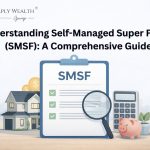How Has the Fixed-Vs.-Variable Debate Changed With Rising Rates?
Thanks to the new stress test introduced by the Office of the Superintendent of Financial Institutions (OSFI) last year, borrowers who prefer the security of a fixed rate are now having to contend with an elevated qualification baseline.
That change, which came into effect in June 2021, saw borrowers required to qualify at either 5.25%, or 2% over the contract rate – whichever is higher – with rising fixed rates now, meaning the latter is the more common qualifying criteria.
According to RATESDOTCA expert and licensed mortgage agent, Sung Lee, the said change had a direct impact on the mortgage amount that many borrowers can qualify for. He also added the fact that the spread between variable and fixed rates remains considerable only means that various options are more likely the preferred choice of many mortgage clients for the foreseeable future.
“It’s important for consumers to really re-evaluate their budget to see if they can weather it. If not, it does make sense to consider converting to a fixed rate, so that they can put a cap on what that payment’s going to be.” – Sung Lee.
Don’t hesitate to get in touch with us for clarification, or further advice, regarding any of the topics covered in this newsletter.







